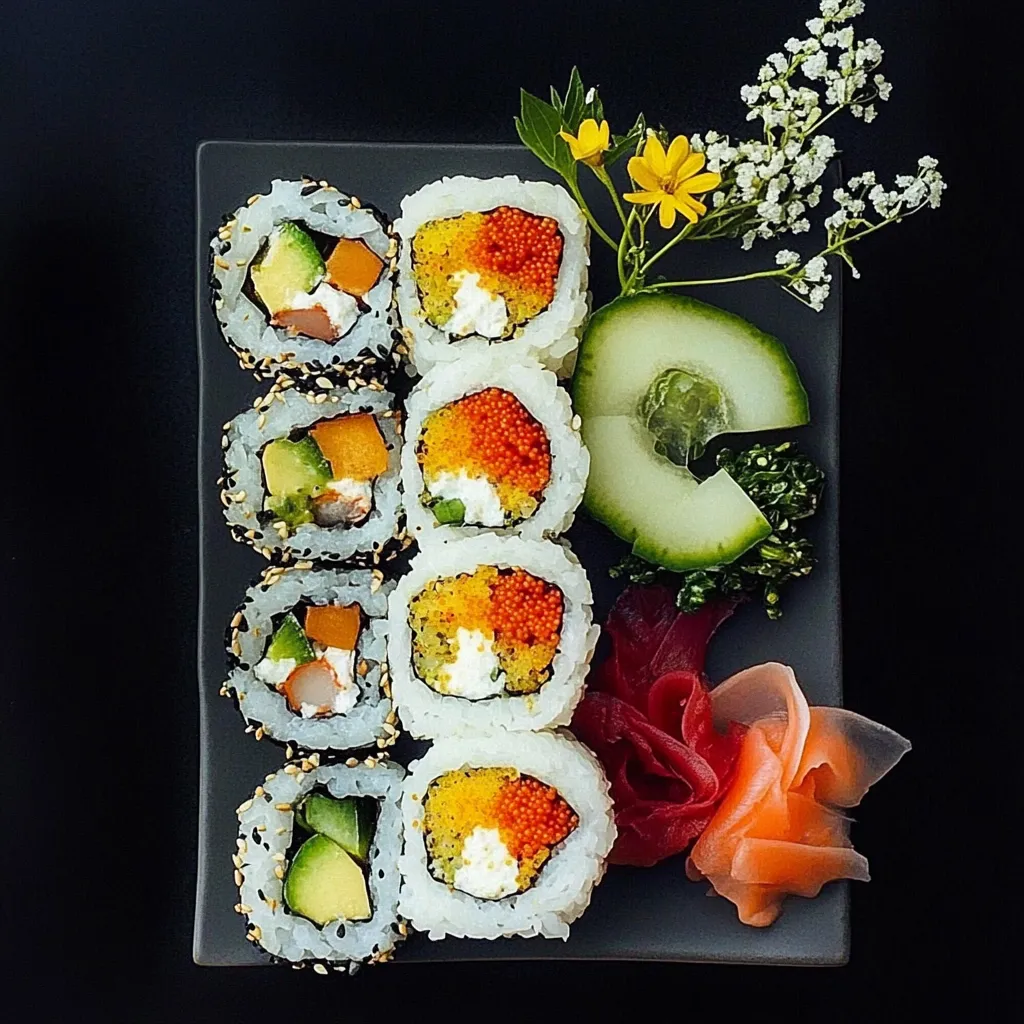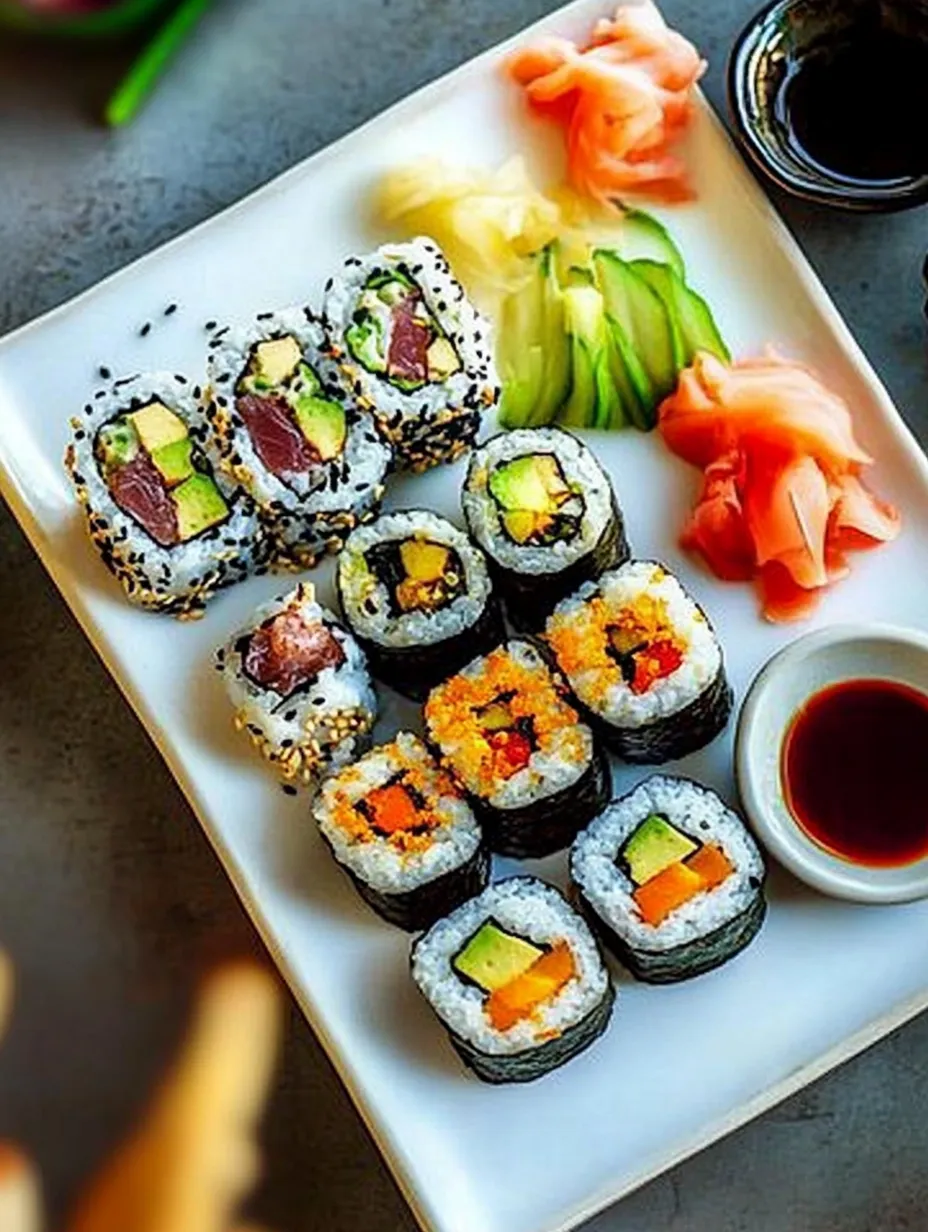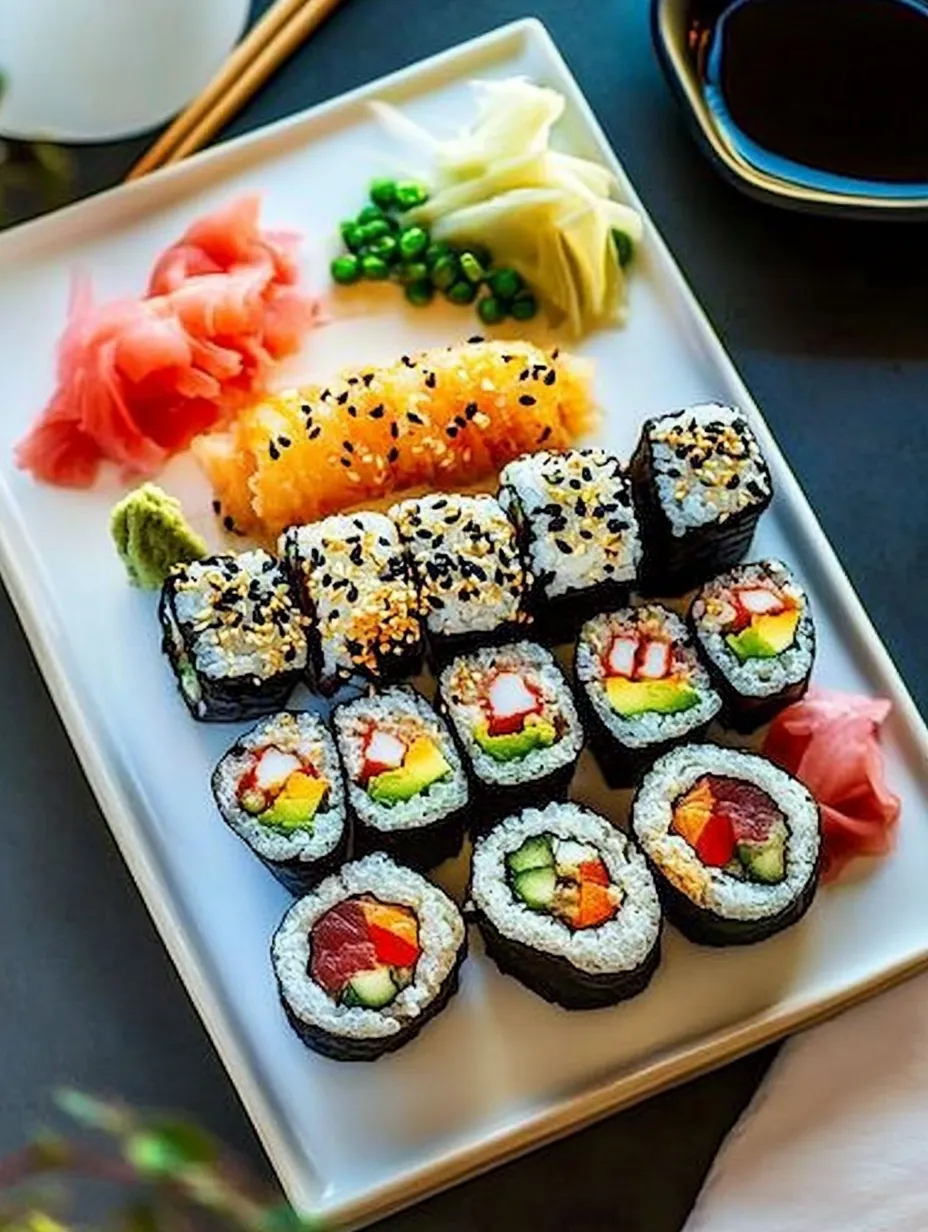 Save
Save
I stumbled into making vegetable sushi when my daughter announced she was going vegetarian last spring. Instead of mourning her departure from our weekly salmon roll tradition, I decided to experiment with plant-based alternatives. What started as a compromise quickly became our new Friday night ritual, with everyone in the family creating their own custom rolls from a spread of colorful veggies and sauces.
My neighbor came over during one of our sushi nights and grabbed a piece of my sweet potato roll topped with spicy mayo. She'd always insisted vegetable sushi was "just filler" in real sushi. After her third piece, she quietly asked if I could show her how to make the rice properly at home.
Fresh Ingredients
- Sushi Rice - Short-grain white rice works best; it gets sticky enough to hold your roll together without falling apart
- Nori Sheets - These seaweed wrappers give authentic flavor and structure; the quality really matters so grab the darkest green ones you can find
- Vegetables - Fresh, crisp options work best; cucumber, avocado, bell peppers, and carrots are my go-to starters
- Pickled Additions - Add brightness and acidity; pickled ginger, carrots or beets create fantastic contrast
- Sweet Potato - When roasted until caramelized, it brings amazing sweetness and substantial texture

I learned the hard way that using regular long-grain rice leads to a crumbly mess that falls apart when you try to cut it. After wasting an entire package of nori and watching my first attempts disintegrate, I finally invested in proper short-grain sushi rice and everything changed.
Rolling Success
- Rice Preparation
- Rinse your rice multiple times until water runs clear. Cook according to package instructions, then mix with seasoned rice vinegar while still hot. Let it cool to room temperature before using - too hot and your nori tears, too cold and it won't stick together properly.
- Mat Setup
- Cover your bamboo mat with plastic wrap to prevent sticking. Position a sheet of nori shiny side down, then spread a thin layer of rice over about two-thirds of it, leaving the top edge bare for sealing. Press gently but firmly - you want it compact but not squashed.
- Filling Strategy
- Less is more when adding fillings - about three thin slices of vegetables laid in a line at the bottom third of your rice-covered nori. Beginners should stick to just two ingredients until they get comfortable with the rolling technique.
- Rolling Technique
- Use your thumbs to lift the bottom edge of the mat while holding fillings in place with your fingers. Roll forward firmly, tucking the filling as you go. Continue rolling, applying even pressure all along the roll. Seal the bare edge with a few drops of water if needed.
- Cutting Method
- Let your roll rest seam-side down for a minute before cutting. Use a very sharp knife dipped in water between cuts. Clean your knife after each slice for the prettiest presentation.
My first attempt at dragon rolls looked like a five-year-old's art project - avocado slices sliding everywhere and rice spilling out both ends. After watching some videos and practicing, I discovered the secret was patience and not rushing the process. Now they're my signature dish when friends come over.
Flavor Combinations
Create eight different vegetable roll options using these winning combinations. My family's favorites include the Vegan "Eel" Roll with cucumber, avocado and red bell pepper drizzled with sweet eel sauce, and the Sweet Potato Roll topped with spicy mayo. For something unexpected, try the Sweet and Spicy Roll with pickled vegetables and a surprising topping of jalapeño slices and raspberry jam.
For special occasions, I make the dramatic Dragon Roll by placing thin avocado slices on top of a sweet potato and cucumber roll, then drizzling with eel sauce. The presentation always gets "oohs" and "aahs" despite being entirely plant-based.
Sauce Magic
Transform simple vegetable combinations with homemade sauces. Spicy mayo takes just seconds to mix up with mayonnaise and sriracha. Eel sauce sounds exotic but is simple to make with soy sauce, rice vinegar, and a touch of white wine or mirin. For something different, try bang bang sauce with its sweet and spicy kick from Thai sweet chili sauce mixed with mayo.
My teenage son refused to try vegetable sushi until I created the "fire roll" with plenty of spicy mayo. Now he makes his own with extra sriracha and has become our family's self-appointed sushi rolling expert.
Serving Style
Present your vegetable sushi on dark plates for dramatic effect. Arrange pickled ginger, wasabi, and small dishes of soy sauce around the plate. For parties, create a DIY sushi bar with prepared rice kept at room temperature, vegetable fillings arranged in bowls, and sauces in squeeze bottles for easy drizzling. Add chopsticks and sake cups for an authentic experience.

I've served these rolls at countless dinner parties, and people are always shocked when they realize no fish was involved. My brother-in-law, a dedicated meat-eater, accidentally ate three avocado cucumber rolls before realizing they didn't contain crab. Rather than being disappointed, he asked for the recipe, saying they were "actually better" than the California rolls he usually ordered. Sometimes the simplest combinations create the most satisfying flavors.
Common Recipe Questions
- → Do I need a bamboo mat to make sushi?
- While a bamboo mat makes rolling much easier, you can use a clean kitchen towel or even a sheet of parchment paper in a pinch. Place it inside a plastic bag or cover with plastic wrap to keep it clean. The important part is having something flexible that helps you apply even pressure as you roll.
- → Can I make sushi rice without an Instant Pot?
- Absolutely! To make sushi rice on the stovetop, rinse the rice until water runs clear, then combine with water in a pot (use 1.25 cups water per 1 cup rice). Bring to a boil, reduce heat to low, cover and simmer for 15 minutes. Remove from heat and let stand, covered, for 10 minutes before adding rice vinegar and salt.
- → Why is my sushi rice so sticky that I can't work with it?
- Sushi rice is naturally sticky, but it shouldn't be unworkable. Make sure to let it cool slightly before using and keep a small bowl of water nearby to wet your hands frequently. This creates a barrier between your hands and the rice. You can also try using slightly less water when cooking the rice next time.
- → How do I keep my nori sheets from getting soggy?
- Work quickly once you've added rice to the nori. The moisture from the rice will start to soften the nori immediately. For reverse rolls (rice outside), make sure the fillings go directly on the nori side, not the rice side. You can also toast nori sheets lightly before using to help them stay crisp longer.
- → How long will vegetable sushi last?
- Freshly made vegetable sushi is best eaten the same day, but can be stored in the refrigerator for up to 24 hours. Wrap it tightly in plastic wrap to prevent the rice from drying out. Avoid refrigerating sushi with avocado, as it will brown quickly. If you need to prepare in advance, make the rice and prep the vegetables, but assemble right before serving.
